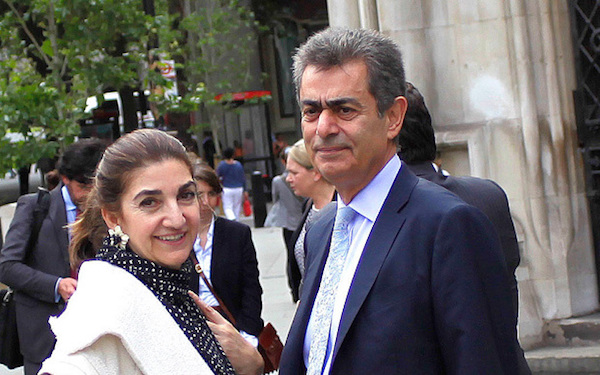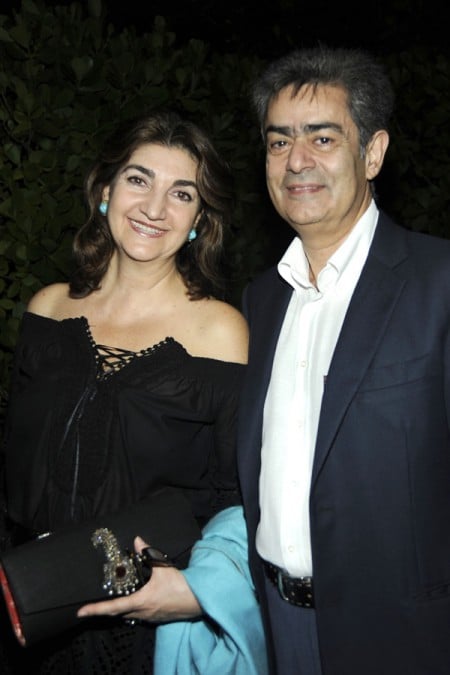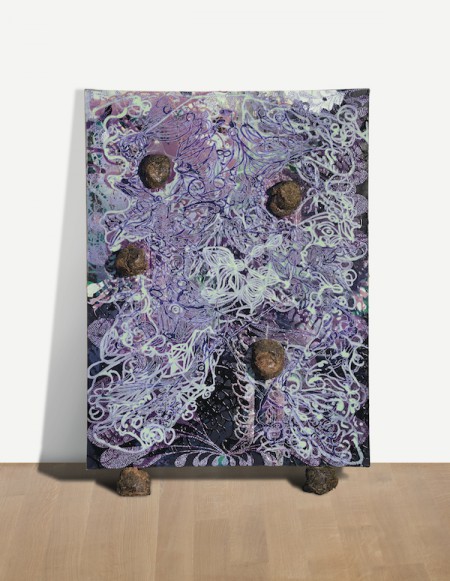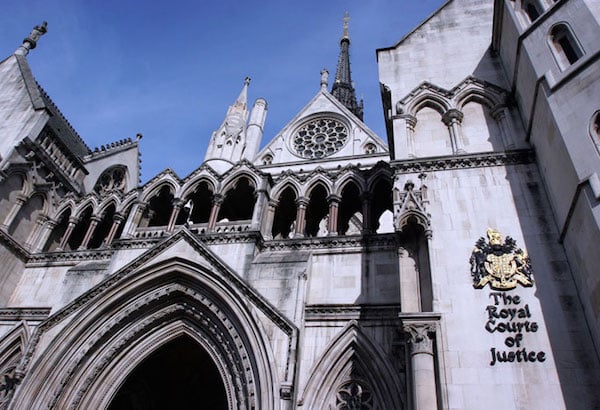People
London Mega Collectors Fatima and Eskander Maleki Settle with Dealer They Accused of Making “Secret Profits”
The Malekis say they treated Shariat "like a son."

The Malekis say they treated Shariat "like a son."

Henri Neuendorf


Fatima and Eskander Maleki.
Photo: via patrickmcmullan.com.
A settlement has been reached in the lawsuit between wealthy London-based collector couple Eskander and Fatima Maleki and their “art guru” Amir Shariat, after they had alleged that the art advisor made profits, unbeknownst to them, from his clients’ art deals. Mr. Shariat vigorously disputes this claim.
In 2014, the Malekis claimed that Shariat, a dealer and curator, was taking unsolicited percentages from transactions without the couple’s knowledge. Shariat denied the allegations and filed a counterclaim against the Malekis for defamation, malicious falsehood, and harassment.
The Telegraph reports that the Malekis told a London High Court that they had a close personal relationship with Shariat and treated him “like a son” after they had been introduced to the dealer by his grandparents, who were close family friends.
According to the Telegraph, the Malekis estimated that Shariat “owed them around $1 million” in commissions from the nine years that he had helped them complement their existing Old Masters collection with works by important contemporary artists, such as Chris Ofili, Glenn Ligon and Gary Webb. A claim which Mr. Shariat vehemently denies.
Although Shariat acknowledged that he maintained a close personal relationship to his clients, he said that when it came to art the relationship was “commercial.”
However, Fatima Maleki—who is a committee member of the Tate—insisted that they were responsible for the fact that Shariat managed to establish himself as a “reputable” art dealer.

Shariat helped the Malekis buy works by contemporary artists such as Chris Ofili.
Photo: Courtesy of Christie’s.
Eskander Maleki told the court, “I thought he was trying to show me that he was repaying me for some of my goodness, for some of the favors I was doing for him, that he was showing me he was doing something for me.”
Shariat denied this interpretation of events, insisting that “I would never have accepted to go into business with someone who would expect me to work for free,” adding that any profit he did make was not more than what he was due.

A settlement was reached at London’s High Court on Monday.
Photo: via The Sun.
He added, “I understand they want to portray an image of me being dependent on them, but that is not true… They were very kind to introduce me to their contacts and I am very grateful for that, but most of the contacts I have in the art world today are through my own efforts.”
The two parties reached a confidential settlement days after the hearing started.
NOTE: An earlier version of this article contained a reference to “embezzlement” that mischaracterized Mr. Shariat’s involvement in this dispute and nature of the conflict between the two parties. We apologize to Mr. Shariat for any harm that may have been caused by the use of this word in limited instances.